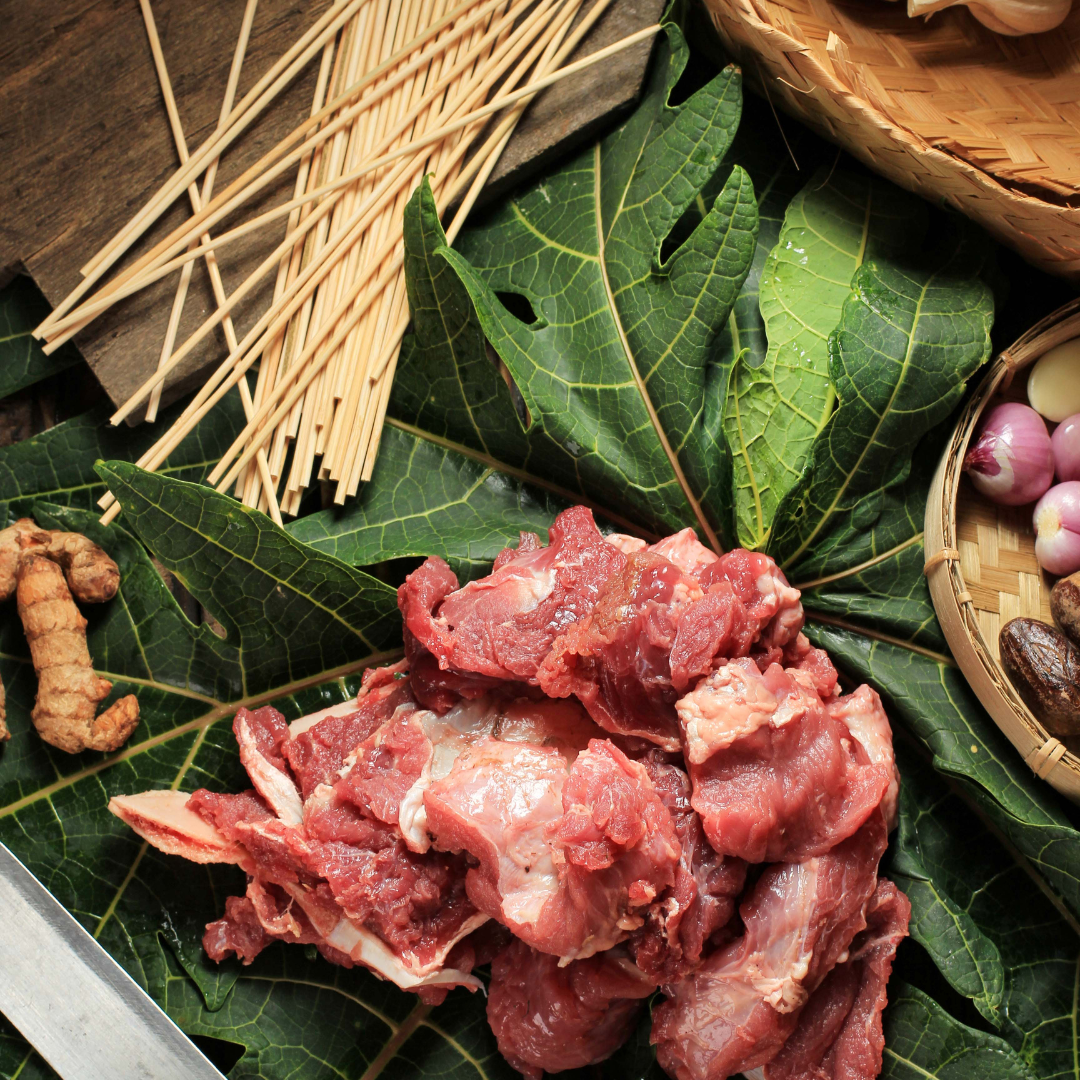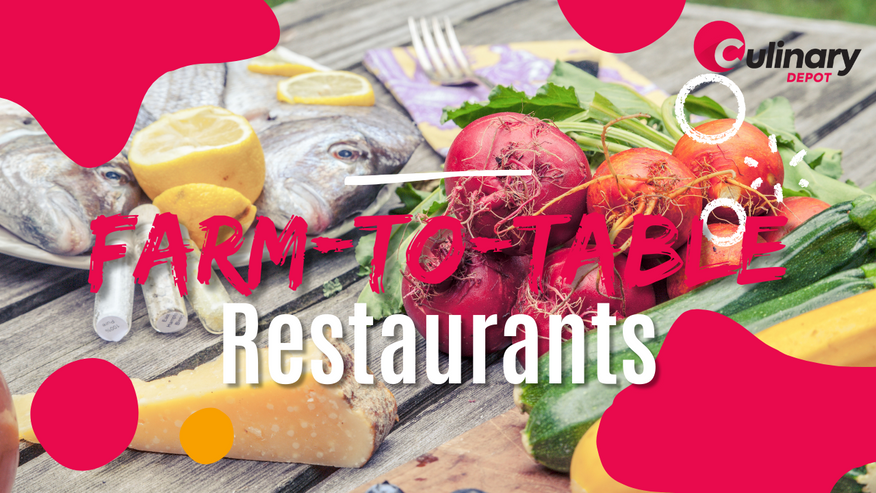Jan 12th 2018 - J. Vigotsky
Farm to Table Restaurants – What to Know
Farm-to-table refers to a food system in which foods are purchased or supplied directly from farmers. Should you dine at a farm-to-table establishment? Everything you need to know about the farm-to-table trend, and starting your own, is right here.
What is Farm-to-Table?
The farm-to-table movement is a socially conscious practice by which restaurants receive food from small local farms as opposed to large corporations. Significantly increasing in popularity during the last 15 years, a farm-to-table approach offers restaurant owners a multitude of benefits:
Benefits of Farm-to-Table
Farm-to-table dining has far too many advantages to describe in a single paragraph. Here are a few of the main attractions that we find at farm-to-table eateries.
Fresher Food

When produce travels hundreds or even thousands of miles to a destination, it’s often harvested prematurely to prevent spoilage during the long trip. While this process helps ensure the food arrives in adequate condition, it also means vegetables won’t be as fresh and fruits won’t taste as flavorful. Soups and sauces lack the delicious punch of produce that’s ripened completely prior to harvesting. But with farm-to-table restaurants, produce is allowed to ripen entirely on a vine or in the ground—resulting in better-tasting fruits and vegetables.
More Nutritious

Many of us have become so accustomed to eating highly processed or prepared food that we no longer even perceive the difference. We become accustomed to this heaviness and slowness. Our health is deteriorating, but we don't seem to care.
The improvement is astounding if you switch to eating fresh meals. You'll feel more awake and active as your health improves. This is because your body will respond favorably to the improved nutrition that will result from your decision to eat more naturally prepared meals.
Environmentally Friendly

Large corporate farms often utilize 18-wheel trucks to transport food all over the country. Leaving trails of diesel emissions in their wake, these trucks are predictably not so great for the environment. Farm-to-table restaurants combat this issue by receiving food directly from local farms, which are just a short drive away. This local relationship leads to less pollution and an improved outlook for the environment.
Community-Oriented

Receiving meat and produce from local family farms helps support the local economy. This is in stark contrast to getting food from a large corporation that’s potentially located across the country.
Supports Local Economy

It's not hard to understand how large corporations have come to dominate increasingly more sectors of the economy. Online shopping has a negative effect on mom-and-pop shops. Local eateries lose business to fast food companies. Furthermore, national food conglomerates may drive away family farms.
But the fact that you're willing to part with cash demonstrates your loyalty. Putting money into the hands of local entrepreneurs is a great way to support your community and the economy as a whole. By supporting a neighborhood eatery, you ensure its continued viability and service to the neighborhood. Supporting local farmers and producers through dining at a farm-to-table establishment ensures that you always have access to fresh, high-quality ingredients. The virtuous circle maintains, and all parties gain.
Understanding Where Your Food Came From
We have all seen the images of birds crammed into tiny crates or food being prepared in big vats of slime in huge warehouses and slaughterhouses. With thoughts like these floating around in one's head, it might be nerve-wracking to go grocery shopping or dine at a restaurant.
The benefit of farm-to-table is that it reveals the full supply chain of your food. You may rest assured that every step of the way from the farm to your plate has been meticulously documented.
Animal Treatment

A significant criticism of corporate factory farms is their inhumane treatment of animals. Receiving meat from local family-owned farms can help quell concerns regarding the animals’ living conditions. As opposed to large corporations that are driven by mass profit, local farmers are more likely to treat their animals humanely by feeding them proper food and providing adequate housing.
More Varieties of Food
Restaurants that buy locally can take advantage of the great variety of crops and livestock raised in the area. The availability of specific fruits, vegetables, cereals, meat, fish, dairy products, and much more is dependent on the community in which the restaurant is located. Buying locally grown and produced food doesn't mean sacrificing any of this variety any more than you would at a chain restaurant.
Seasonal Menus

If a restaurant relies on local growers and manufacturers for its ingredients, its menu will naturally shift with the seasons. Because of this, menus may change with the seasons, making certain dishes and treats seasonal specials. It's always fascinating for the intrepid diner to see what novel meals the restaurant will be featuring.
Although at first glance this may seem annoying, you may come to find that it is actually rather entertaining. Consider a seasonal fall salad that is only available for a limited time. Just imagine how much fun it would be to make it a yearly ritual to stop by the restaurant at least once in the fall in order to take advantage of all the gorgeous fresh produce. It's something worth waiting all year for.
A Brighter Future

Proper soil maintenance is crucial to ensuring farmland remains fertile for years to come. While money-driven corporate farms make little effort to rotate crops, practice seed diversity, and promote biodiversity, local family farms are more likely to engage in these sustainable farming practices.
Many farm-to-table restaurants feature seasonal menus that enable to farmers to cycle crops, which helps keep soil tilth healthy enough for long-term crop growth. Local farmers are also less likely to use pesticides, further improving the future prospects of a farm’s fertility. While they might not seem like such a big deal now, these practices will keep farms useable for our children and grandchildren.
Ethical Responsibility
In order to supply the needs of multinational corporations, fast food chains, and other eateries, animals are routinely genetically modified and housed in deplorable circumstances around the world. Due to widespread ignorance, these customs have persisted for a long time. The realization that "I'm just one person" can prevent even those with awareness from taking action. What can I do to make a difference?
But the truth is that each of us can make a difference and has a voice. When we all speak together, our voices will be far louder than if just one of us were to try to do so. That's why it's crucial to patronize eateries that are committed to ethical and sustainable food practices.
While eating at farm-to-table restaurants might not solve every issue with industrial farming, it's a simple step in the right direction that can be taken right now.

